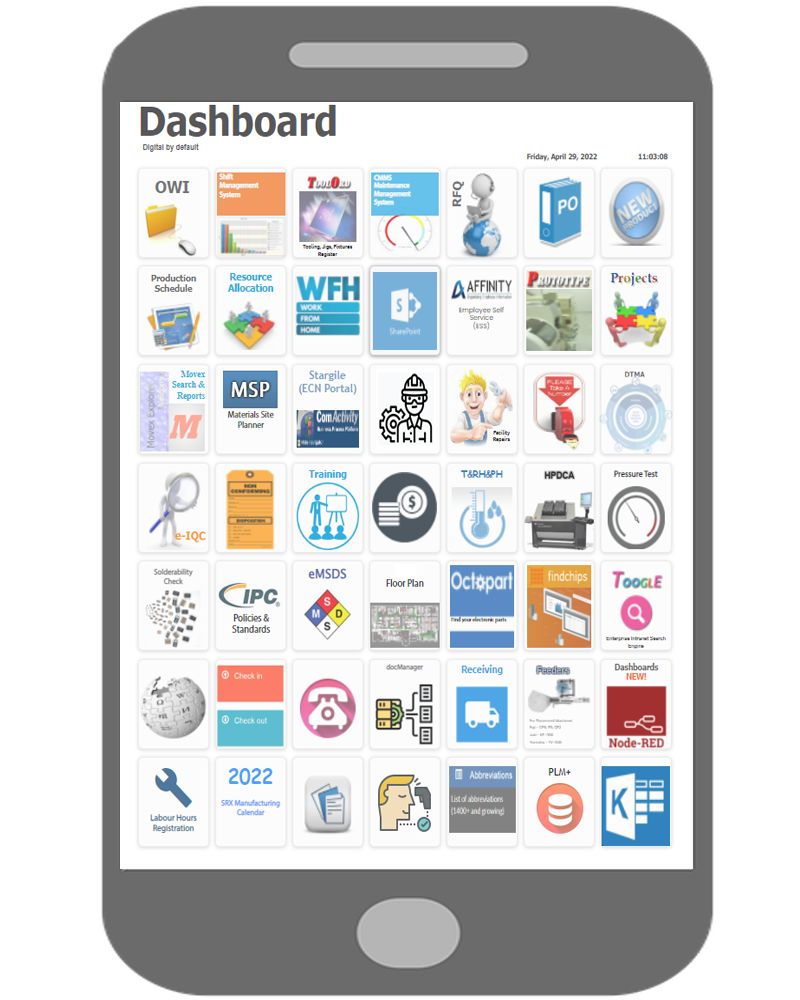In the ever-evolving landscape of manufacturing, the imperative for a digital shift is undeniable. Digital Transformation (DT) is not merely a choice but an essential for any business aiming to stay competitive. Beyond being a technology initiative, it necessitates a fundamental shift in the company's mission and values, with unwavering support from top management.
The digital imperative goes beyond operational efficiency; it is a cultural metamorphosis that transcends individual tasks. DT signifies a holistic reimagining of how a business operates, requiring a recalibration of organizational mindset and practices. The journey towards Digital Transformation is not a solitary endeavor; it's a collective effort that aligns people, data, and processes towards a common goal.
This transformative process extends far beyond the adoption of digital tools—it's about fostering a culture that values innovation, embraces change, and prioritizes continuous improvement. Successful DT initiatives strategically weave together the human element with cutting-edge technologies, resulting in an organizational fabric that is more adaptable, responsive, and customer-focused.
The integration of DT involves more than the adoption of new software; it's about weaving a digital thread through every facet of the business. It's a commitment to harnessing the power of data to enhance customer experiences, streamline manufacturing efficiency, and fortify competitiveness in a digital-first era. The journey towards becoming a digitally mature organization is akin to a marathon, not a sprint.
Embracing DT as a journey signifies an acknowledgment that digital maturity is not achieved overnight. It is a phased implementation, intricately mapped out to align with the unique digital maturity of the company. Each phase is a deliberate step towards cultivating a digital mindset, fostering innovation, and leveraging technology to create tangible business value.
As we navigate the intricate landscape of Digital Transformation, we recognize that it's not just about adopting the latest technology trends; it's about shaping the future of the organization. The companies that thrive in this digital-first era are those that embrace DT as a continuous journey—a voyage towards greater resilience, innovation, and sustained competitiveness.
The term Industry 4.0 has become integral to discussions surrounding the future of manufacturing, representing the fourth industrial revolution that commenced approximately around 2010.
In Industry 4.0, data takes centre stage. Unlike the automation-centric focus of Industry 3.0, Industry 4.0 represents a paradigm shift by leveraging data as actionable information, thereby automating business processes.
Industry 4.0 envisions a seamless, interconnected network where data drives intelligent, automated business processes.
The transformation goes beyond automated factories; it seeks to create interconnected, intelligent systems that adapt dynamically to changing market conditions.
Embracing Industry 4.0 demands not only the adoption of advanced technologies but also the cultivation of a culture marked by innovation, adaptability, and continuous improvement. It represents a revolutionary departure from traditional manufacturing, placing businesses at the forefront of the evolving digital era.
At the core of Industry 4.0 lies the transformative force of the Industrial Internet of Things (IIoT). Functioning as a connected ecosystem, IIoT plays a pivotal role in providing users with real-time information, establishing itself as a dynamic conduit for data transformation.
When seamlessly integrated with Digital Transformation, a potent synergy materializes, giving rise to the concept of a Digital Factory. This evolved paradigm represents a sophisticated and intelligent business model that transcends traditional manufacturing frameworks.
Within the Digital Factory, data is not just accumulated but becomes a strategic asset, driving informed decision-making processes.
The harmonious amalgamation of IIoT and Digital Transformation not only ushers in a new era of operational efficiency but also fosters an environment where data evolves into actionable insights, propelling businesses toward heightened adaptability and competitiveness in the digital landscape.
What is DT?
Digital Transformation is:
What is IIoT?
Industrial Internet of Things is:
What is DF?
A Digital Factory is:
The path to Industry 4.0
To embark on the Industry 4.0 journey, businesses must follow these three strategic steps:
Step1: Perform Digital Transformation Maturity Assessment
Step2: Becoming a smarter business - take data, turn it into information and make better decisions
Step3: Plugin your newly created smart business into a digital supply chain

Get your smartphone for businesses,
the unified namespace,
the single source of truth